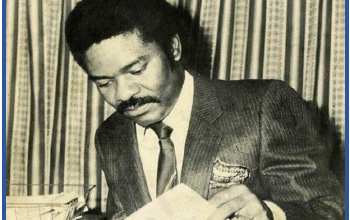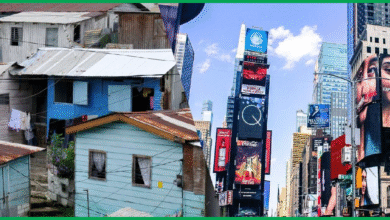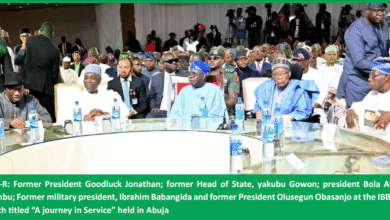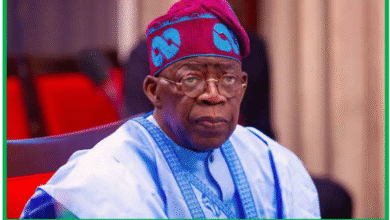JOHN MAHAMA: WHY HE’S WELL-PLACED TO TACKLE WEST AFRICA’S ECONOMIC & SECURITY PROBLEMS

Energy radiated from Accra’s Black Star Square as John Dramani Mahama was sworn in as new president at a ceremony in the capital Accra on January 7. The inauguration ceremony took place, with around 20 African leaders in attendance. Just before President Mahama took his oath of allegiance, Professor Naana Jane Opoku-Agyeman had earlier been sworn in as the country’s first female Vice President.
Presidents, regional leaders, representatives of the international community – including the Commonwealth Secretary-General, the Rt Hon Patricia Scotland KC, and thousands of Ghanaians watched as John Dramani Mahama took the oath of office as Ghana’s new president.
Among those present were Nigerian President Bola Ahmed Tinubu, Senegal’s Bassirou Diomaye Faye, Burkina Faso’s leader Capt. Ibrahim Traore, Kenyan President William Ruto, President Felix Tshisekedi of the Democratic Republic of the Congo, and Gabon’s General Brice Oligui Nguema.
The President delivered his inaugural address, saying:
“As elected President, today we are also making a different kind of history, one that speaks to our maturity as a democracy. A nation of citizens with the authority to determine their political future. Today’s exercise between the outgoing President, Nana Addo, and I feel a bit like déjà vu, as it’s similar to the transitional exercise we performed eight years ago on January 7, 2017.”
“At the time, I was the outgoing President, having served one term, and he was the incoming President, having been given a mandate by the people of Ghana to lead this great nation. He and I both understood then, as I’m sure we do today, that it’s the people of Ghana we were elected to serve.”
Mahama takes over from former President Nana Akufo-Addo, who served two terms in power.
“Today should mark the opportunity to reset our country,” the 66-year-old new president, wearing the West African country’s national dress, told a jubilant crowd decked in the green, red, black and white hues of his National Democratic Congress (NDC) party on Tuesday.
Immediately after the president took his oath of office, the energy radiated from Accra’s Black Star Square spread to the streets across the capital city , and across Ghana as a whole. Many elated faces in different cities and towns waved Ghanaian and NDC flags, chanted and broke into spontaneous dance to the beat of drums and the blaring honk of vuvuzelas.
Mahama’s return to the presidency ends eight years in power for the New Patriotic Party (NPP) under President Nana Akufo-Addo, whose last term was marked by Ghana’s worst economic turmoil in years, a bailout by the International Monetary Fund, and a debt default.
Mahama, who led Ghana from 2012 to early 2017, had previously failed twice to win back the presidency. But in December’s election, he managed to tap into expectations of change among Ghanaians.
On Black Star Square, supporters of the elected leader exuded joy, hope and optimism.
“I’ve never been so proud to be Ghanaian,” Akosua Nyarko, 28, a teacher from the southern city of Cape Coast, told the AFP news agency. “The energy here is amazing … This is the dawn of a new era!”
Mohammed Abubakar, a 50-year-old farmer from Tamale in northern Ghana, said he was confident Mahama would prioritise rural development.
“Coming here to Accra for this historic event is a dream come true,” the farmer said, adding that Mahama’s “leadership gives me hope that my children will have a better future”.
A writer and devotee of Afrobeat music, Mahama wrote in his memoir – My First Coup d’Etat, And Other True Stories from the Lost Decades of Africa – that he was changed by his boyhood experiences during a 1966 military coup.
He was born in northern Ghana as a child of privilege, his house being the only one in the village with a diesel generator. His father, who served as a junior government minister, was briefly detained and interrogated by the 1966 coup leaders but later released unharmed.
John Dramani Mahama was born on the 29th of November 1958 in Damongo, the then capital of the West Gonja District of the Northern Region. His father, Emmanuel Adama Mahama, a prominent rice farmer was a Member of Parliament for the West Gonja Constituency and the first Regional Commissioner of the Northern Region under Ghana’s first leader, President Kwame Nkrumah.
John spent the first years of his life with his mother, Abiba Nnaba, in Damongo, before moving to Accra to live with his father, who imbued him with a strong passion for education. He received his basic education at Achimota Basic School, where he began defending other children from bullies, and later moved to the Ghana Secondary School in Tamale.
He will later gain admission into the country’s premier university, the University of Ghana, in Legon, receiving a Bachelor of Arts degree in history in 1981. After his BA degree, John Mahama moved back to Tamale, where he taught history at Ghana Secondary School. However, the political and economic situation in Ghana forced him to flee to Nigeria, where he rejoined his father who was in exile.
In 1983 he came back, with a strong desire to build bridges between people through communication, so he enrolled in a post-graduate programme in Communication Studies at the University of Ghana
He graduated in 1986 and then went to Moscow, in the former Soviet Union, to the Institute of Social Sciences, where he received a post-graduate degree in Social Psychology in 1988. While in Moscow, he noted the imperfections of the Socialist System and came to the realization that each nation had to find it’s own transformative way, away from ideological dogmas.
1996 marked the year John Dramani Mahama entered Ghanaian politics. He joined the National Democratic Congress (NDC) and, being an eloquent champion of the underprivileged, he was elected to the Parliament of Ghana to represent the Bole- Bamboi Constituency for a four-year term. He was re-elected in the elections of 2000 and 2004.
During this time, he was appointed a Deputy Minister for Communications in 1997, became Minister for Communications from 1998 until 2001. Between 2001 and 2005, he was minority Parliamentary Spokesman for Communications. He also held the same position from 2005 until 2008.
In July 2012, he succeeded his boss, President John Evans Atta Mills, who passed away on July 24, 2012 and elected in December 2012 as President of Ghana for his first four-year term. He thus made political history by becoming the first Ghanaian head of state to have been born after Ghana’s declaration of independence on 6th March, 1957.
Mahama was also a Member of Parliament and chairman of the West Africa Caucus at the Pan-African Parliament in Pretoria.
With a history of political stability, Ghana’s two main parties, the ruling NPP and the NDC, have alternated in power equally since the return to multi-party democracy in 1992. The country of 33 million people is Africa’s top gold exporter and the world’s second-largest cocoa producer.
The inauguration ceremony in Ghana’s Black Star Square followed the victory of the National Democratic Congress (NDC) party in the December 9, 2024, elections, which the Commonwealth Observer Group commended for its orderly conduct.
Support for Ghana’s democratic journey and the reinforcement of the bonds of cooperation and solidarity came from Commonwealth leaders worldwide, including the Presidents of Kenya, Gambia, Nigeria, Namibia, Rwanda, Sierra Leone, South Africa, and Togo, who all attended the inauguration.
The Commonwealth Secretary-General, Scotland gave her observation on the momentous occasion:
“It is a real honour to be here with thousands of Ghanaians, Commonwealth family, and our international partners to witness this day. Ghana’s commitment to democratic principles and its ability to implement them effectively make it a cherished member of the Commonwealth. The impact of Ghana’s smooth transitions extends beyond its borders, as the country has become a beacon for democracy in the region and beyond.”
The Commonwealth Secretary-General noted the prominence of Ghanaians in Africa’s leadership journey, especially in Commonwealth institutions, citing the selection of the Hon Shirley Ayorkor Botchwey to succeed her as the second successive female secretary-General of the Commonwealth.
She also noted the recent election of another Ghanaian, Joshua Opey, as the Chairperson of the Commonwealth Youth Council (CYC). The CYC serves as the official representative voice for over 1.5 billion young people in the Commonwealth countries.
While in Ghana, Secretary-General Scotland held bilateral talks with several Commonwealth leaders and Accra-based Commonwealth High Commissioners to discuss areas of mutual interest and further support for Ghana.
As Ghana’s new president, John Mahama inherits a host of security challenges by dint of the country’s esteemed position in the West African region, which has become increasingly volatile. The region has seen six successful coup detats and several attempted ones in the last four years.

Examples include Mali, Burkina Faso, Guinea, Niger, Guinea-Bissau, Benin and Sierra Leone. Since 2015, there have been at least 17 coups and attempted coups in the region.
Terrorism and insurgencies have become visible security threats. The Sahel has become the epicentre of global terrorism, as both Islamic State (Isis) and Al Qaeda have established strong footholds in the region.
Mali, Burkina Faso and Niger have broken away the regional ECOWAS body, to form a new alliance, L’Alliance des Etats du Sahel (Alliance of Sahel States). Their decision followed Ecowas’s threat to intervene militarily following the coup in Niger.
The geopolitical landscape is changing in West Africa. The US, France, Russia and China are vying for influence, putting the region at the centre of cold-war style rivalries.
But many West African security researchers believe Mahama is uniquely positioned to champion regional stability. This is because he has played a pivotal role in the region over the past decade, particularly within Ecowas.
During his first term as president of Ghana from 2013 to 2017 Mahama was elected ECOWAS chairman in March 2014. Unusually, his chairmanship was extended for another term in recognition of his leadership and successes. These included the creation of a multinational task force which assisted in the reversal of the Boko Human insurgency in 2015, and his handling of the Ebola crisis.
If Mahama is re-elected as the next Ecowas chair, his first official visit will likely – or should – be to the Alliance of Sahel States.
This breakaway group withdrew from Ecowas in September 2023. It started as a mutual defence pact and involves the three central Sahel states of Mali, Burkina Faso and Niger.
Since the alliance emphasises sovereignty and regional security cooperation outside Ecowas, it has weakened Ecowas and West African unity. This reduces the collective ability of West African states to meet transnational threats
Mahama’s experience as a former Ecowas chairman will help. His administration must explore collaboration while remaining committed to good governance and democracy.
Rebuilding trust among member states and attending to the root causes of the breakaway will be crucial to healing the rift.
At the same time, Ghana must strengthen its bilateral and multilateral partnerships so that the Sahel alliance does not undermine broader regional security initiatives. Balancing diplomacy with firm support for democratic norms will be key in this complex challenge.
Mahama’s greatest challenge will be West Africa’s changing geopolitical landscape. Global powers are vying for influence amid the regional rift and military coups. This puts the region at the centre of cold war-style rivalries.
The Africa Corps – formerly the Wagner Group – has driven pro-Russian sentiment in parts of the Sahel. Ukraine provided information that enabled Tuareg separatists to attack Malian soldiers and Africa Corps fighters in July 2024. Such foreign interference mirrors the proxy dynamics of the cold war.
Mahama’s socialist inclinations and academic history align with Russian ideology. His challenge will be to navigate the dynamics while maintaining Ghana’s strategic autonomy and regional leadership.
But he has to do so by managing great power competitions and interests. Russia’s provision of arms, security support through the Africa Corps, and a non-interference policy make it a key partner for Sahel alliance countries.
Western powers are adjusting their strategies. After leaving several Sahel countries, the United States has already expressed interest in forging stronger ties with Ghana. France’s increasing interest in Nigeria, an Anglophone state, reflects its diminishing influence in the francophone Sahel and its attempt to secure relevance elsewhere.
Mahama’s ability to engage constructively with western allies and powers like Russia and China will be critical to ensure Ghana avoids entanglement in the rivalries destabilizing the region.
Insecurity and military dictatorships have ended multilateral initiatives such as the UN missing in Mali (minusma), dissolved the G -5 Sahel and seen the departure of several western counterinsurgency coalitions in the Sahel. Multilateralism, however, remains the surest way for the new president to navigate the region’s challenges. As the credibility of some regional leaders is compromised, Mahama could position Ghana as a new mediator in West Africa.
Burkina Faso’s leader was the only member of the Sahel alliance to attend Mahama’s inauguration. Engagement between Ghana and Burkina Faso could be a safe starting point towards a multilateral engagement with the alliance states.
Accra also houses the headquarters of the Africa Continetal Free Trade Area, so the new president could use trade to soften the stance of Sahel countries. Similarly, the Accra Initiative, a cooperative regional security mechanism, includes all Sahel alliance countries. It could be a vehicle to deal with growing instability.
If Mahama succeeds in returning the Sahel alliance countries to Ecowas, it will be his most important foreign policy achievement when he leaves office in January 2029.




